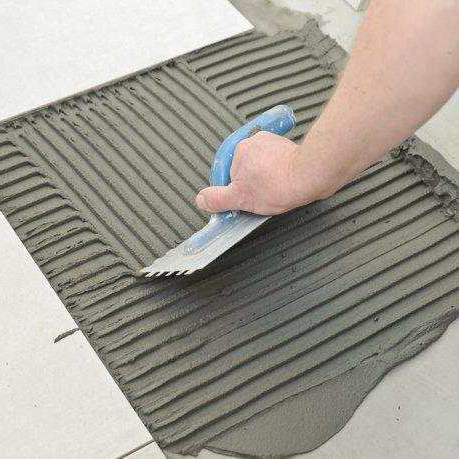
Nov . 03, 2025 19:40 Back to list
HPMC for Tile Adhesive: High Bond, Slip-Resistant, Easy Mix
Hpmc For Tile Adhesive is a key solution in the building materials industry, specifically within Building Chemicals and Ceramic tile adhesive additive. This article explores how HEBEI JINGZUAN CHEMICAL TECHNOLOGY CO., LTD. supports professionals with durable, high-performance products, and explains why this product is an ideal choice for businesses in these sectors.

Table of Contents
- Hpmc For Tile Adhesive Overview
- Benefits & Use Cases of Hpmc For Tile Adhesive in Ceramic tile adhesive additive
- Cost, Maintenance & User Experience
- Sustainability & Market Trends in building materials
- Conclusion on Hpmc For Tile Adhesive from HEBEI JINGZUAN CHEMICAL TECHNOLOGY CO., LTD.
Hpmc For Tile Adhesive Overview
Hydroxypropyl Methyl Cellulose (HPMC) is the workhorse polymer that modernizes cementitious tile adhesives. As a non-ionic cellulose ether, Hpmc For Tile Adhesive acts as a rheology modifier and water-retention aid, stabilizing the fresh mortar and ensuring strong hydration of cement. In the building materials value chain—Building Chemicals and Ceramic tile adhesive additive—HPMC elevates consistency, open time, slip resistance, and final bond strength, making it a critical component for premium “hpmc tile adhesive” formulations.
- Typical specs available from HEBEI JINGZUAN CHEMICAL TECHNOLOGY CO., LTD. include viscosity grades (e.g., ~20,000–200,000 mPa·s, Brookfield at 2% solution), moisture ≤5%, ash ≤5%, particle size 80–120 mesh, gel temperature ~70–75°C, and low ether distribution variance for steady performance.
- In C1/C2 cementitious adhesive systems (per EN 12004), correct dosing of HPMC (approx. 0.2–0.6% by weight of dry mix, formulation-dependent) increases water retention, controls slump, and improves trowelability—key for large-format and low-porosity tiles.
- As a reliable manufacturer, HEBEI JINGZUAN CHEMICAL TECHNOLOGY CO., LTD. delivers consistent batches, fast dissolution grades, and technical support for formulation tuning and plant-scale trials, minimizing production variability for B2B customers.
Benefits & Use Cases of Hpmc For Tile Adhesive in Ceramic tile adhesive additive
In real-world jobsites, HPMC functions as the mortar bonding agent that unlocks reliable performance across substrates such as concrete, render, cement boards, and heated floors. In thin-bed and medium-bed adhesives, Hpmc For Tile Adhesive provides high water retention to complete cement hydration, while its pseudoplastic rheology enhances spreadability and wetting, contributing to bond development even on dense porcelain.
- Applications: indoor/outdoor walls and floors, large-format and heavy tiles, low-absorption porcelain, swimming pools, and fast-track commercial projects requiring extended open time and anti-slip (T) performance.
- Key advantages: stable viscosity, strong sag resistance, better open time and adjustability, reduced bleeding, improved workability at high temperatures, and compatibility with redispersible polymer powders for C2/E/T formulations.
- HEBEI JINGZUAN CHEMICAL TECHNOLOGY CO., LTD. supports customers with grade selection (e.g., fast-wet, anti-sag, hot-climate types), lab screening, and scale-up guidance to achieve repeatable results across markets.
Cost, Maintenance & User Experience
Total cost of ownership for a hpmc tile adhesive hinges on optimized dosage, consistency, and reduced callbacks. Although HPMC is a small percentage of the dry mix, it heavily influences productivity: smoother troweling lowers installer effort, while strong water retention and open time reduce tile rework and waste. Typical dosing is 0.2–0.6% (formulation and climate dependent), with ROI realized through fewer failures (e.g., slip, early skinning) and higher daily coverage by crews.
- Durability and performance: when properly formulated, adhesives meet EN 12004 requirements (C1/C2, E, T), supporting long-term bond integrity on demanding substrates and large tiles.
- User feedback: applicators report creamier mortar, better notch holding, reduced slump on verticals, and dependable adjustability time—improving jobsite efficiency.
- Handling: supplied typically in 25 kg bags; store cool and dry. Shelf life is commonly up to 24 months in unopened packaging. For best dispersion, add HPMC to the dry blend, then mix with water per formulation guidance.
Sustainability & Market Trends in building materials
The building chemicals sector is aligning with low-VOC, resource-efficient formulations and stricter performance standards. Hpmc For Tile Adhesive, derived from refined cellulose, supports these goals by enabling lower water demand, stable rheology without added solvents, and consistent quality that reduces on-site waste. Market momentum toward large-format tiles, high-density porcelain, and hot-climate installs increases the need for high-retention, sag-resistant grades that maintain workability and open time.
- Regulatory and standardization: compliance with REACH-style requirements and performance classifications (e.g., EN 12004) helps producers compete across regions while meeting sustainability expectations.
- HEBEI JINGZUAN CHEMICAL TECHNOLOGY CO., LTD. invests in grade innovation—such as dust-reduced and rapid wet-out options—helping partners formulate adhesives that are efficient, installer-friendly, and aligned with green building trends.
Conclusion on Hpmc For Tile Adhesive from HEBEI JINGZUAN CHEMICAL TECHNOLOGY CO., LTD.
Hpmc For Tile Adhesive is the cornerstone additive for reliable, high-performance ceramic tile adhesives—delivering water retention, rheology control, and application stability that B2B decision makers require. With consistent quality, technical guidance, and industry-focused grades, HEBEI JINGZUAN CHEMICAL TECHNOLOGY CO., LTD. supports manufacturers in meeting C1/C2, E, and T performance targets while optimizing TCO.
- Partner with a trusted mortar bonding agent supplier that understands building chemicals from lab to jobsite.
- Contact us: email: oscar@cnjzchemical.com
- Visit our website: https://www.cnjzchemical.com
-
Cellulose Ether | High Purity, Fast Hydration, Stable Flow
NewsNov.17,2025
-
Cellosize HEC Thickener – High Purity, Fast-Dissolving
NewsNov.17,2025
-
Cellulose Ether: High-Purity Liquid Thickener, HEC Cellulose
NewsNov.17,2025
-
VAE Powder (RDP): High Adhesion & Flexibility for Mortars
NewsNov.17,2025
-
Cellulose Ether: High Purity, Fast-Dissolving, Stable Flow
NewsNov.17,2025
-
Cellosize HEC Thickener – High Purity, Fast-Dissolving
NewsNov.11,2025







